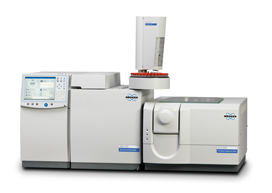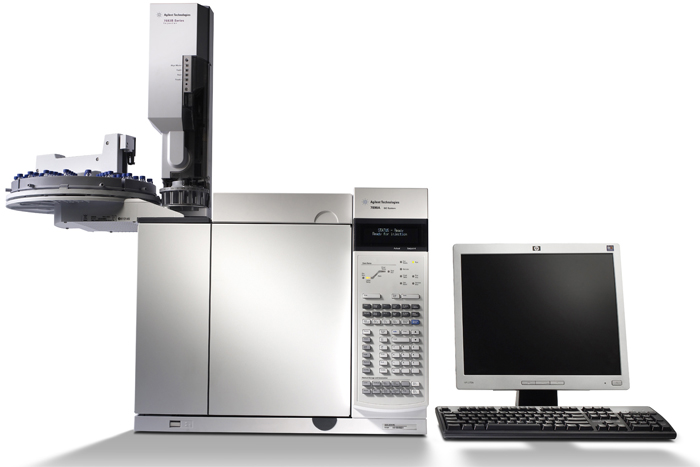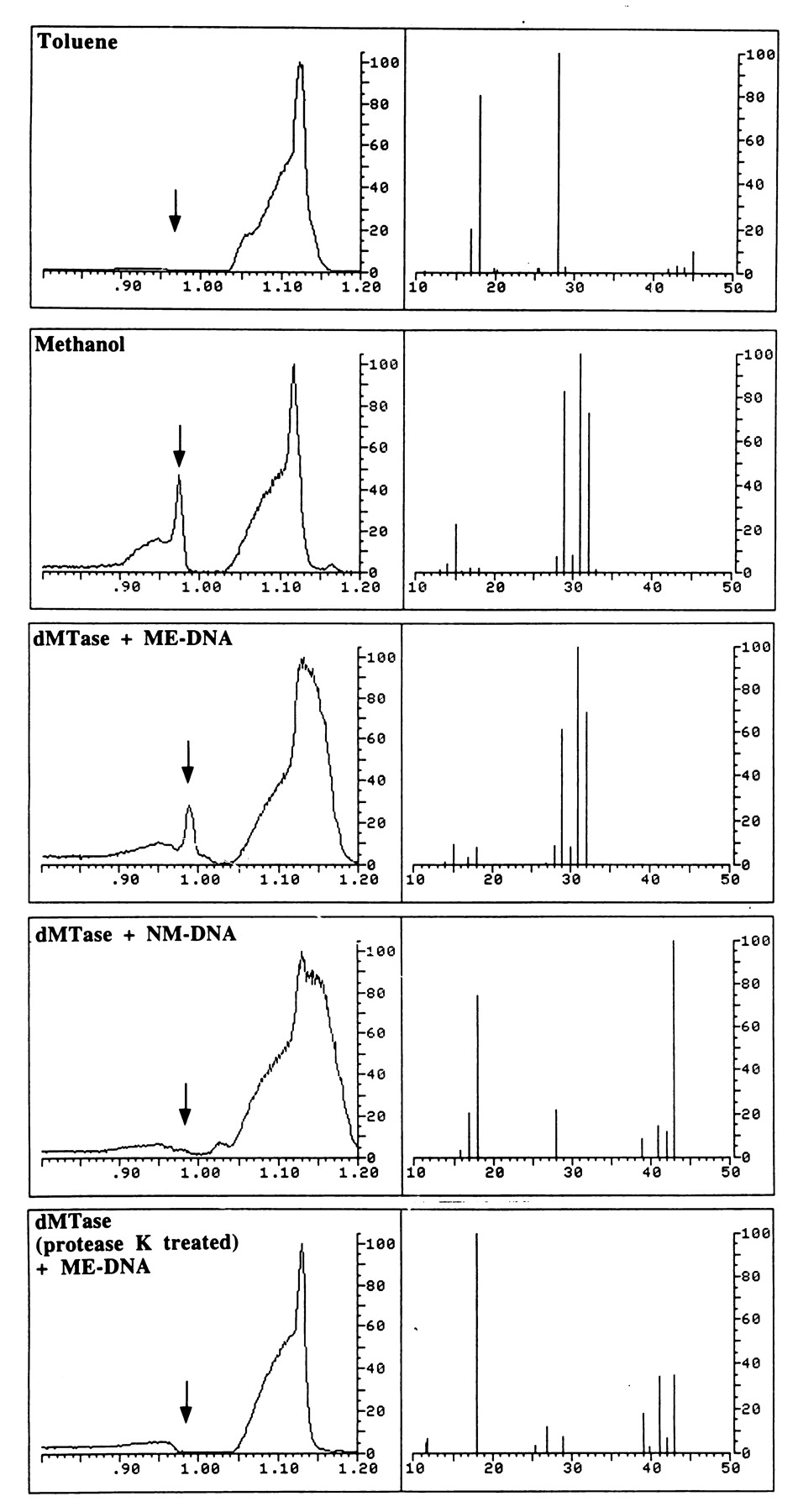Gas Chromatography Mass Spectrometry (GC-MS)
Gas Chromatography Mass Spectrometry (GC-MS) is an instrumental technique, comprising a gas chromatograph (GC) coupled to a mass spectrometer (MS), by which complex mixtures of chemicals may be separated, identified and quantified. This makes it ideal for the analysis of the hundreds of relatively low molecular weight compounds found in environmental materials.
How does it work?
In order for a compound to be analysed by GC-MS it must be sufficiently volatile and thermally stable.
In addition, functionalised compounds may require chemical modification (derivatization), prior to analysis, to eliminate undesirable adsorption effects that would otherwise affect the quality of the data obtained. Samples are usually analyzed as organic solutions consequently materials of interest (e.g. soils, sediments, tissues etc.) need to be solvent extracted and the extract subjected to various 'wet chemical' techniques before GC-MS analysis is possible.
Applications:
Metabolomics, environmental studies, trace analysis, atmosphere monitoring
Sample Handling Requirements:
Nanograms of material.
Complementary Techniques:
Warwick Capability:



Contact:
Claire Gerard: / 07385 145064
